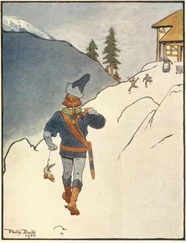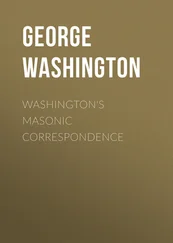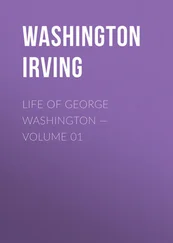Pelham Wodehouse - Not George Washington — an Autobiographical Novel
Здесь есть возможность читать онлайн «Pelham Wodehouse - Not George Washington — an Autobiographical Novel» весь текст электронной книги совершенно бесплатно (целиком полную версию без сокращений). В некоторых случаях можно слушать аудио, скачать через торрент в формате fb2 и присутствует краткое содержание. Жанр: Классическая проза, Юмористическая проза, на английском языке. Описание произведения, (предисловие) а так же отзывы посетителей доступны на портале библиотеки ЛибКат.
- Название:Not George Washington — an Autobiographical Novel
- Автор:
- Жанр:
- Год:неизвестен
- ISBN:нет данных
- Рейтинг книги:4 / 5. Голосов: 1
-
Избранное:Добавить в избранное
- Отзывы:
-
Ваша оценка:
- 80
- 1
- 2
- 3
- 4
- 5
Not George Washington — an Autobiographical Novel: краткое содержание, описание и аннотация
Предлагаем к чтению аннотацию, описание, краткое содержание или предисловие (зависит от того, что написал сам автор книги «Not George Washington — an Autobiographical Novel»). Если вы не нашли необходимую информацию о книге — напишите в комментариях, мы постараемся отыскать её.
Not George Washington — an Autobiographical Novel — читать онлайн бесплатно полную книгу (весь текст) целиком
Ниже представлен текст книги, разбитый по страницам. Система сохранения места последней прочитанной страницы, позволяет с удобством читать онлайн бесплатно книгу «Not George Washington — an Autobiographical Novel», без необходимости каждый раз заново искать на чём Вы остановились. Поставьте закладку, и сможете в любой момент перейти на страницу, на которой закончили чтение.
Интервал:
Закладка:
Most men would have salved their wounded susceptibilities by putting a match to the manuscript without further thought or investigation.
But I have ever been haunted by a somewhat over-strict conscience, and I sat down there and then to read the stupid stuff.
At seven o'clock I was still reading.
My dinner was brought in. I bolted it with Margaret's play propped up against the potato dish.
I read on and on. I could not leave it. Incredible as it would appear from anyone but me, I solemnly assure you that the typewritten nonsense I read that evening was nothing else than The Girl who Waited .
CHAPTER 25
BRIGGS TO THE RESCUE (James Orlebar Cloyster's narrative continued)
I finished the last page, and I laid down the typescript reverently. The thing amazed me. Unable as I was to turn out a good acting play of my own, I was, nevertheless, sufficiently gifted with an appreciation of the dramatic to be able to recognise such a play when I saw it. There were situations in Margaret's comedy which would grip a London audience, and force laughter and tears from it…. Well, the public side of that idiotic play is history. Everyone knows how many nights it ran, and the Press from time to time tells its readers what were the profits from it that accrued to the author.
I turned to Margaret's letter and re-read the last page. She put the thing very well, very sensibly. As I read, my scruples began to vanish. After all, was it so very immoral, this little deception that she proposed?
"I have written down the words," she said; "but the conception is yours. The play was inspired by you. But for you I should never have begun it." Well, if she put it like that——
"You alone are able to manage the business side of the production. You know the right men to go to. To approach them on behalf of a stranger's work is far less likely to lead to success."
(True, true.)
"I have assumed, you will see, that the play is certain to be produced. But that will only be so if you adopt it as your own,"
(There was sense in this.)
"Claim the authorship, and all will be well."
"I will," I said.
I packed up the play in its brown paper, and rushed from the house. At the post-office, at the bottom of the King's Road, I stopped to send a telegram. It consisted of the words, "Accept thankfully.—Cloyster."
Then I took a cab from the rank at Sloane Square, and told the man to drive to the stage-door of the Briggs Theatre in Shaftesbury Avenue.
The cab-rank in Sloane Square is really a Home for Superannuated Horses. It is a sort of equine Athenaeum. No horse is ever seen there till it has passed well into the sere and yellow. A Sloane Square cab-horse may be distinguished by the dignity of its movements. It is happiest when walking.
The animal which had the privilege of making history by conveying me and The Girl who Waited to the Briggs Theatre was asthmatic, and, I think, sickening for the botts. I had plenty of time to cool my brain and think out a plan of campaign.
Stanley Briggs, whom I proposed to try first, was the one man I should have liked to see in the part of James, the hero of the piece. The part might have been written round him.
There was the objection, of course, that The Girl who Waited was not a musical comedy, but I knew he would consider a straight play, and put it on if it suited him. I was confident that The Girl who Waited would be just what he wanted.
The problem was how to get him to himself for a sufficient space of time. When a man is doing the work of half a dozen he is likely to get on in the world, but he has, as a rule, little leisure for conversation.
My octogenarian came to a standstill at last at the stage-door, and seemed relieved at having won safely through a strenuous bit of work.
I went through in search of my man.
His dressing-room was the first place I drew. I knew that he was not due on the stage for another ten minutes. Mr. Richard Belsey, his valet, was tidying up the room as I entered.
"Mr. Briggs anywhere about, Richard?" I asked.
"Down on the side, sir, I think. There's a new song in tonight for Mrs. Briggs, and he's gone to listen how it goes."
"Which side, do you know?"
"O.P., sir, I think."
I went downstairs and through the folding-doors into the wings. The O.P. corner was packed—standing room only—and the overflow reached nearly to the doors. The Black Hole of Calcutta was roomy compared with the wings on the night of a new song. Everybody who had the least excuse for being out of his or her dressing-room at that moment was peering through odd chinks in the scenery. Chorus-girls, show-girls, chorus-men, principals, children, scene-shifters, and other theatrical fauna waited in a solid mass for the arrival of the music-cue.
The atmosphere behind the scenes has always had the effect of making me feel as if my boots were number fourteens and my hands, if anything, larger. Directly I have passed the swing-doors I shuffle like one oppressed with a guilty conscience. Outside I may have been composed, even jaunty. Inside I am hangdog. Beads of perspiration form on my brow. My collar tightens. My boots begin to squeak. I smile vacuously.
I shuffled, smiling vacuously and clutching the type-script of The Girl who Waited , to the O.P. corner. I caught the eye of a tall lady in salmon-pink, and said "Good evening" huskily—my voice is always husky behind the scenes: elsewhere it is like some beautiful bell. A piercing whisper of "Sh-h-h-!" came from somewhere close at hand. This sort of thing does not help bright and sparkling conversation. I sh-h-hed, and passed on.
At the back of the O.P. corner Timothy Prince, the comedian, was filling in the time before the next entrance by waltzing with one of the stage-carpenters. He suspended the operation to greet me.
"Hullo, dear heart," he said, "how goes it?"
"Seen Briggs anywhere?" I asked.
"Round on the prompt side, I think. He was here a second ago, but he dashed off."
At this moment the music-cue was given, and a considerable section of the multitude passed on to the stage.
Locomotion being rendered easier, I hurried round to the prompt side.
But when I arrived there were no signs of the missing man.
"Seen Mr. Briggs anywhere?" I asked.
"Here a moment ago," said one of the carpenters. "He went out after Miss Lewin's song began. I think he's gone round the other side."
I dashed round to the O.P. corner again. He had just left.
Taking up the trail, I went to his dressing-room once more.
"You're just too late, sir," said Richard; "he was here a moment ago."
I decided to wait.
"I wonder it he'll be back soon."
"He's probably downstairs. His call is in another two minutes."
I went downstairs, and waited on the prompt side. Sir Boyle Roche's bird was sedentary compared with this elusive man.
Presently he appeared.
"Hullo, dear old boy," he said. "Welcome to Elsmore. Come and see me before you go, will you? I've got an idea for a song."
"I say," I said, as he flitted past, "can I——"
"Tell me later on."
And he sprang on to the stage.
By the time I had worked my way, at the end of the performance, through the crowd of visitors who were waiting to see him in his dressing-room, I found that he had just three minutes in which to get to the Savoy to keep an urgent appointment. He explained that he was just dashing off. "I shall be at the theatre all tomorrow morning, though," he said. "Come round about twelve, will you?"
There was a rehearsal at half-past eleven next morning. When I got to the theatre I found him on the stage. He was superintending the chorus, talking to one man about a song and to two others about motors, and dictating letters to his secretary. Taking advantage of this spell of comparative idleness, I advanced (l.c.) with the typescript.
Читать дальшеИнтервал:
Закладка:
Похожие книги на «Not George Washington — an Autobiographical Novel»
Представляем Вашему вниманию похожие книги на «Not George Washington — an Autobiographical Novel» списком для выбора. Мы отобрали схожую по названию и смыслу литературу в надежде предоставить читателям больше вариантов отыскать новые, интересные, ещё непрочитанные произведения.
Обсуждение, отзывы о книге «Not George Washington — an Autobiographical Novel» и просто собственные мнения читателей. Оставьте ваши комментарии, напишите, что Вы думаете о произведении, его смысле или главных героях. Укажите что конкретно понравилось, а что нет, и почему Вы так считаете.



